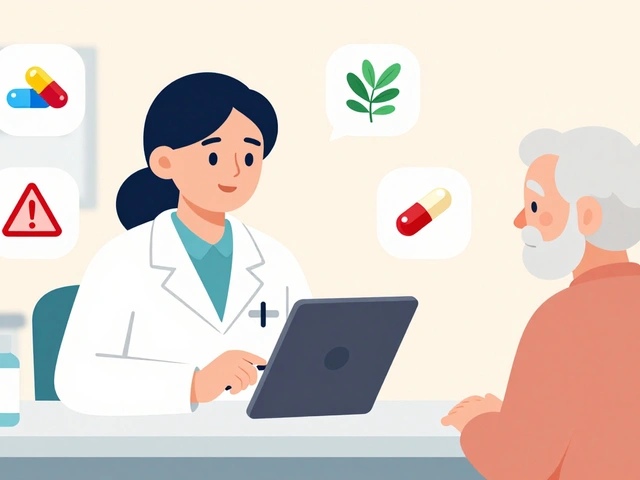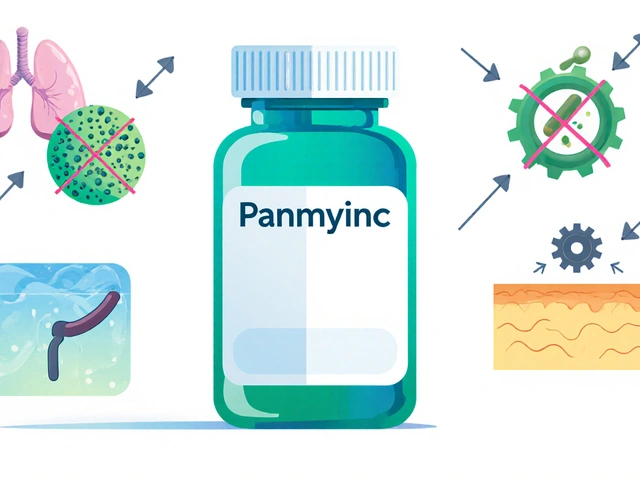Weakness: What It Means and How to Deal With It
Feeling weak can be unsettling, but it’s often a sign your body is trying to tell you something. It might be as simple as missing a night’s sleep, or it could point to a deeper health issue. In this guide we’ll break down the most common reasons for weakness, point out red‑flag symptoms, and share easy actions you can take today to feel stronger.
What Can Cause Weakness?
Weakness shows up in many forms – you might feel shaky, have trouble lifting groceries, or just get tired after a short walk. Here are the top culprits:
- Dehydration or poor nutrition: Not drinking enough water or skipping meals can drop blood‑sugar levels, leaving you light‑headed.
- Medication side effects: Some drugs, like certain blood pressure pills or steroids, list weakness as a side effect. Check the label or ask your pharmacist.
- Infections: Flu, COVID‑19, or a urinary tract infection can sap your energy as the body fights the bug.
- Chronic conditions: Diabetes, heart disease, anemia, and thyroid problems often list fatigue or muscle weakness as symptoms.
- Lack of sleep and stress: Chronic stress hormones and sleep debt wear down muscles and brain function.
Each cause has its own clues. For example, dehydration usually comes with dry mouth and dark urine, while anemia might add pale skin and shortness of breath.
When Should You Seek Help?
Most weak days pass with rest and a glass of water, but watch out for these warning signs:
- Weakness that comes on suddenly and is severe.
- Accompanied by chest pain, shortness of breath, or difficulty speaking.
- Persistent weakness lasting more than two weeks despite rest.
- Sudden loss of balance or coordination.
- Weakness after a head injury or if you’ve fallen.
If any of these appear, call your doctor or go to urgent care. Early detection can prevent complications, especially for heart or neurological issues.
In the meantime, try these quick fixes:
- Drink at least eight glasses of water a day.
- Snack on protein‑rich foods – a handful of nuts or a boiled egg can lift blood‑sugar quickly.
- Get 7‑9 hours of sleep; set a consistent bedtime.
- Move gently – a short walk or light stretching can improve circulation.
- Review any new meds with your pharmacist; ask if weakness is expected.
Remember, feeling weak isn’t always a disaster. Often it’s a cue to hydrate, refuel, or catch up on rest. But when the feeling lingers or comes with serious symptoms, it’s time to get professional advice.
Use this guide as a quick reference. Spot the pattern, try the simple tips, and know when it’s worth a call to your healthcare provider. Your body will thank you for paying attention.
This article explores how weakness and forgiveness actually connect, busting the myth that forgiving is the same as being weak. Instead, it shows how letting go can show real strength, improve relationships, and help personal growth. You'll get clear examples, psychological insights, and practical tips for handling conflict in everyday life. The article focuses on realistic perspectives and down-to-earth advice. It offers a fresh way to see what forgiveness really means in today's world.
Categories
Archives
Recent-posts
Pharmacist-Led Substitution Programs: How They Work and Why They Reduce Hospital Readmissions
Dec, 11 2025
Canadamedsunited.com Review: Affordable Online Pharmacy Benefits, Safety, and User Tips
Aug, 14 2025



 Medications
Medications




